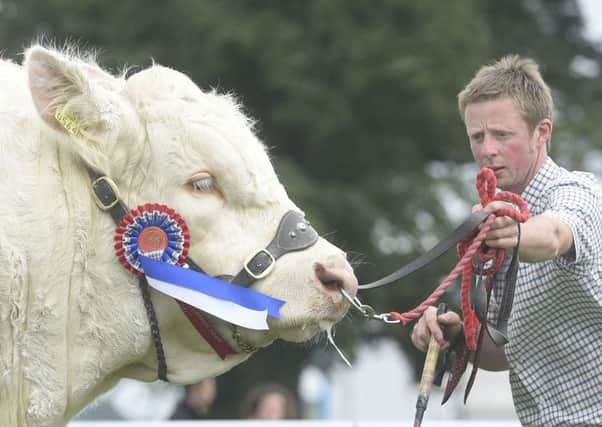Stephen Jardine: Highland Show is a vital connection between public and farmers


This weekend, rural Scotland is in the city for the 177th Royal Highland Show at Ingliston in Edinburgh. Over four days up to 200,000 people are expected to converge on the site for the annual celebration of country and farming life.
Alongside cattle parades and shiny new tractors, food and drink will also be an integral part of the event. But it wasn’t always so. For many years there seemed to be a weird disconnect between farming and the public. It felt like farming was an end in itself rather than a means of feeding people.
Advertisement
Hide AdAdvertisement
Hide AdThat was apparent in the poor understanding most people had of farming life. And it was obvious at the Royal Highland Show, where any actual produce was kept out of the way and the options for eating came from burger vans in Scotland with enough diesel and vegetable oil to make it to Ingliston. Back then you could spend all four days at the show and come away with an intimate understanding of pig breeding and thresher mechanics but no sense whatsoever that all this existed to produce food to feed the nation.
Now the dots have been joined. The last farmers who couldn’t really be bothered with the public have retired with their back issues of Tractor Monthly and a new generation have taken their place, well aware that farms are essentially food factories and farmers are foremost food producers.
It seems so obvious now but it wasn’t back in 1999 when Jim Fairlie started Scotland’s first farmers market in Perth with a dozen stallholders. The catalyst for that was the BSE crisis which decimated beef sales and forced butchers out of business. As a sheep farmer, Jim realised the future of farming depended upon building a trusting relationship. At the heart of that was a shift from farmers being mysterious strangers who lived down remote countryside tracks to them being people who sold you broccoli and beef joints in the town centre on a Saturday morning.
Eighteen years on, Scotland now has over 50 farmers markets and farming has been demystified. A generation ago being a shepherd in the Lake District would have been one of the loneliest jobs in the country. Contrast that with now where the Herdwick Shepherd James Rebanks has over 90,000 followers on Twitter who can’t seem to get enough details of his every day life looking after his flock. Add on the millions watching programmes like Countryfile and Landward and the increased connection we have with the countryside is clear.
And about time too. Scottish farming has never been so important to all of us and never so much under threat. With Brexit negotiations underway, we await the implications for Scottish agriculture but many believe difficult times lie ahead.
Professor Douglas MacMillan has studied rural economics for over 30 years and believes Brexit could be “catastrophic” for Scottish hill farming.
“Together with the demographic time bomb (most hill farmers are in their 60s or 70s), Brexit may generate a veritable Tsunami which will sweep away centuries of our farming traditions,” he told Scottish Farmer.
Lowland farms may not be immune from change either as altered business models encourage a move away from traditional family farms to giant intensive operations with economies of scale. Imagine a Royal Highland Show in the future where instead of ranks of local farmers showing their prize heffers and eyeing up that new Massey Ferguson, you have a handful of giant international corporations lobbying politicians and the public to try to cut corners in the pursuit of profit.
Advertisement
Hide AdAdvertisement
Hide AdAt this vital time for the industry, we all have a part to play supporting our farmers. To be able to do that, we need to understand what they do and the Royal Highland Show is a key moment to do that and eat very well at the same time.